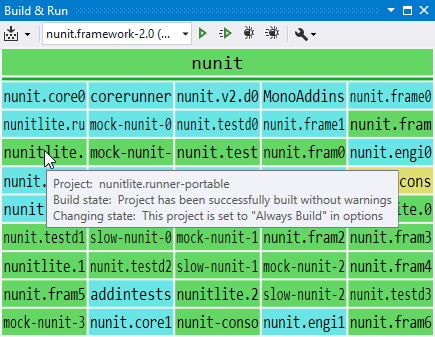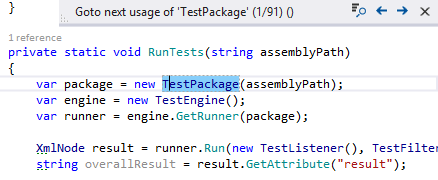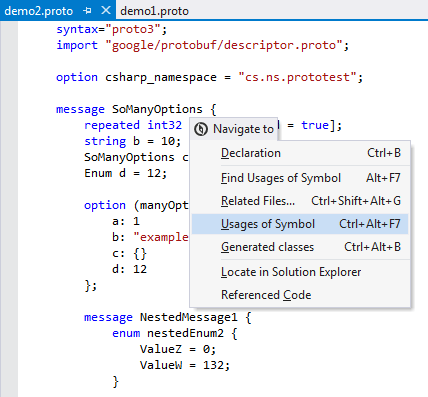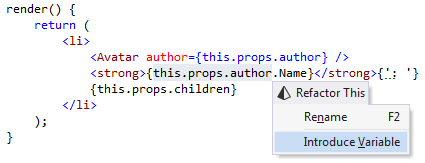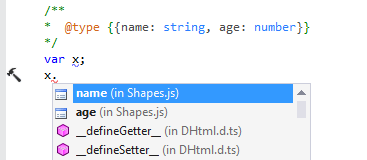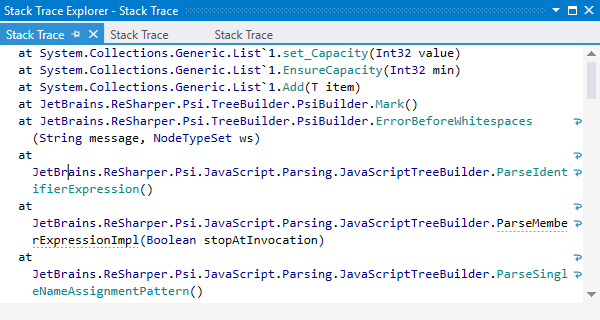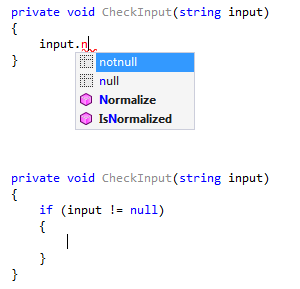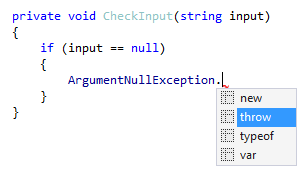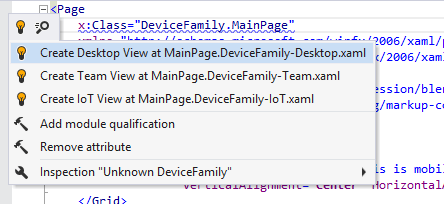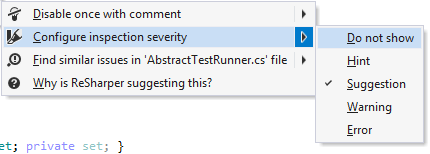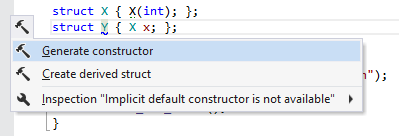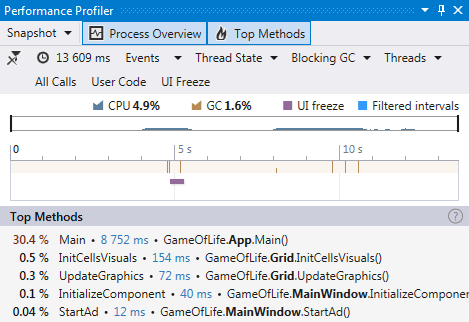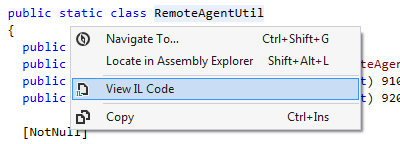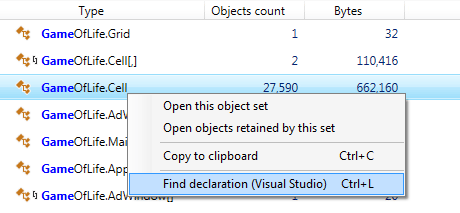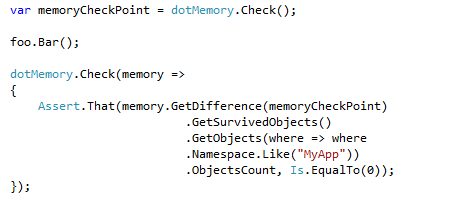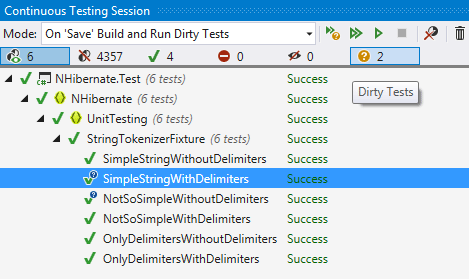ReSharper Build
ReSharper Build is an out-of-process
incremental build tool that can take
advantage of multiple processes, visualizes
different kinds of project build status, and is
optimized for large solutions with lots of
dependencies.
ReSharper Build replaces Visual Studio build
management with a system that applies heuristics to
only build projects that need updating. Please note
that it does not replace MSBuild and your projects
are still built normally.
Read this
post for more details on ReSharper Build.
Usage-aware Go to
declaration
ReSharper 10 extends the functionality of Go to
declaration (as well as Ctrl+click)
so that you can also use the shortcut to look up
usages.
In case you have one declaration and one usage, you
can use Go to declaration to simply switch
between them using one shortcut. If you have
multiple usage of a symbol, subsequent Go to
declaration hits will take you to further
found usages of the symbol, one usage at a time.
Navigation between usages is aided by a Find
Usages-like pane that enumerates found usages,
contains additional controls to mouse-click between
usages, and helps you flush all found usages to the
regular Find Results window if you like.
Support for Google
Protocol Buffers
ReSharper 10 provides proper IDE support in .proto
files. This includes syntax highlighting, code
analysis, code completion and navigation for both
2.x and 3.0 Protobuf versions.
Enhanced JavaScript
and TypeScript support
Support for JSX syntax is now available in
.js, .jsx and .tsx in
order to streamline React development in ASP.NET
applications.
Code completion, all ReSharper regular context
actions for HTML and JavaScript, navigation to
declarations and search for usages, as well as a
couple of refactorings are available as well:
JavaScript regular expressions that were originally
supported in ReSharper 9.2 are now covered in more
detail. Specifically, regular expressions are now
recognized in RegExp constructors and methods, as
well as in String object methods
(match(), search(), replace(),
split()), in addition to regular
expression literals. Also, Make regular
expression and Remove regular
expression context actions are now
available in JavaScript.
TypeScript 1.6 support has been completed with the
addition of intersection types and class
expressions.
In addition, code completion for JavaScript is now
aware of types from JSDoc comments:
Revised Stack Trace
Explorer
Stack Trace Explorer tool window has been basically
rewritten from scratch in version 10. Among other
effects, this enabled Stack Trace Explorer to
provide links to types in addition to methods and to
parse more types of data, including WinDbg GCRoot
dumps and Visual Studio Call Stack tool window
contents.
The update to Stack Trace Explorer also affects
ReSharper Unit Test Sessions tool window where it is
used to display call stacks in unit test output and
provide links to relevant source code locations.
Out-of-the-box postfix
templates
ReSharper 10 includes one of the most famous plugin
integrated into mainline ReSharper. Postfix
templates allow reducing backward caret jumps while
typing C# code. For example, you can start with an
expression and proceed to wrap it into an if statement to check
whether it returns true.
If you are dealing with null checks on a regular
basis, use .null and
.notnull postfix templates, ReSharper
will check if the selected entity is not null and
wrap it in an if statement:
Another template allow you to throw an exception if
certain condition is met. Enter the exception class
name, then a dot, and then pick the corresponding
template from the code completion pop-up:
Device family-specific
views in UWP applications
Universal Windows Platform enables using device
family-specific XAML views to provide different UI
for different types of devices. ReSharper 10 learns
to handle this technique with dedicated code
inspections, quick-fixes and context actions.
NUnit 3.0 support
As the new major version of NUnit has been released,
we have laid the groundwork to support it
in ReSharper test runner.
Whereas the initial ReSharper 10 supported
NUnit 3.0 Beta 5,
ReSharper 10.0.2 and later supports NUnit 3.0 RTM.
Code style
settings
ReSharper 10 comes with a set of changes aimed to
simplify configuration of and complying with code
style settings. For example, inspection severity can
now be configured right from the Alt+Enter
menu, without using a modal window:
Find similar issues modal window is now used only for
searching in a custom scope. All default scopes,
such as solution, project and file, can be applied
right from the Alt+Enter
menu.
Additionally, there are new code inspections with
quick-fixes that detect explicit or implicit access
modifiers for types and type members, let you use a
pre-configured order of modifiers, and help you join
or separate attributes in a section.
